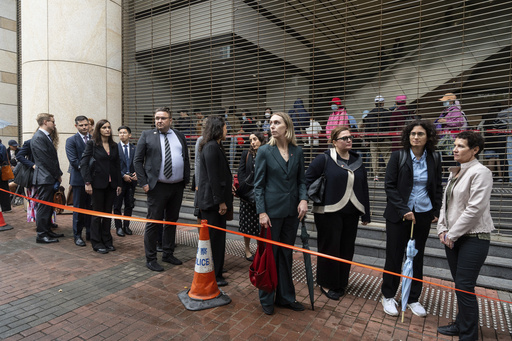
HONG KONG — A group of 45 well-known activists in Hong Kong received prison sentences of up to ten years on Tuesday, prompting backlash from governments abroad and human rights organizations.
These advocates for democracy were part of 47 individuals charged under a national security law imposed by Beijing in 2021. They were implicated in an unofficial primary election aimed at selecting opposition candidates. This case, the most significant under Hong Kong’s national security framework, accused the individuals of conspiring to block government budgets indiscriminately in hopes of achieving a legislative majority. Such a majority would supposedly allow for the dissolution of the legislature and the removal of the city’s leader.
The group represented a wide spectrum of pro-democracy figures. Out of the total, 31 individuals entered guilty pleas to charges of conspiracy to commit subversion. Fourteen others were found guilty after a prolonged trial, while two were acquitted.
In Australia, Foreign Minister Penny Wong expressed her government’s serious concern regarding the incarceration of Australian citizen Gordon Ng along with the other activists. Wong indicated that Australia has strongly voiced its objections to the Chinese and Hong Kong governments concerning the expansive use of national security laws.
Taiwan’s presidential office representative, Karen Kuo, stated that democracy should never be considered a crime. She criticized the actions of the Chinese government, labeling them as unjust tactics to inhibit the political engagement and speech freedoms of Hong Kong’s pro-democracy advocates. Kuo claimed the sentencing actions undermine the promises made regarding the “50 years unchanged” principle and highlight the impracticality of the “One Country, Two Systems” framework. Such a framework was supposed to guarantee Western-style civil liberties in Hong Kong, following its return to Chinese sovereignty in 1997.
The U.S. Consulate in Hong Kong expressed strong condemnation of the sentences, asserting that those charged were aggressively targeted and imprisoned merely for engaging in political practices protected by the city’s mini-constitution. They urged both Beijing and Hong Kong authorities to halt politically motivated prosecutions and to release all political prisoners, including individuals imprisoned for peacefully advocating their rights.
Chris Patten, the last British governor of Hong Kong, remarked that the sentencing was an insult not only to the people of Hong Kong but also to anyone who values human rights globally. He denounced the “sham” sentences and called for the British government to take significant notice of the outcome, emphasizing that the activists were crucial to the city’s pro-democracy movement.
Maya Wang, an associate director at Human Rights Watch, commented on the situation by stating that running in an election with the intent to win has now become a criminal offense that could result in lengthy prison terms in Hong Kong. Wang pointed out that these severe sentences illustrate the rapid decline of civil liberties and judicial independence in Hong Kong over the past four years, since the introduction of the national security law.
